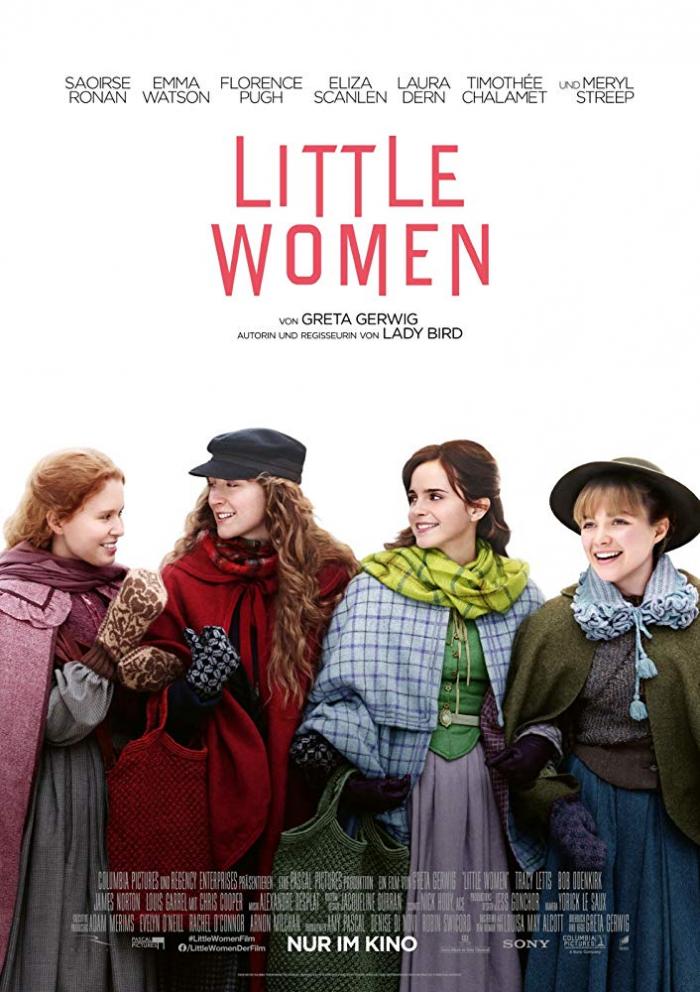Little Women, Big Mess
FTC Statement: Reviewers are frequently provided by the publisher/production company with a copy of the material being reviewed.The opinions published are solely those of the respective reviewers and may not reflect the opinions of CriticalBlast.com or its management.
As an Amazon Associate, we earn from qualifying purchases. (This is a legal requirement, as apparently some sites advertise for Amazon for free. Yes, that's sarcasm.)

GRETA GERWIG's directorial rewrite of Louisa May Alcott's American classic is a sprawling mess of a period piece that meanders about, hopping backward and forward in time to finally get to its quiet and unsatisfactory conclusion.
The story opens on Jo March (SAOIRSE RONAN), fully grown and living in New York while trying to make her own way as a writer. She earns some small remuneration with her stories, but is instructed by the publisher that the female heroines of her stories must either end up married or dead, as an underscore to the chauvinism and sexism of the Reconstruction era. As she writes, we flash back to scenes of her growing up with her sisters, actress Meg (EMMA WATSON), musician Beth (ELIZA SCANLEN) and artistic Amy (FLORENCE PUGH). This first flashback provides a convenient label that the events occur seven years ago. And since later in the film's current time narrative we learn that Amy is 20 years old, we are to suspend our disbelief enough to accept the 22 year old Pugh as a 13 year old girl. That's a hard sell. Granted, seven years isn't exactly a geological epoch when it comes to things changing -- but it's definitely a time of great changes for transforming young girls into grown women; a metamorphosis so striking it really merits a change of actresses between the periods.
LITTLE WOMEN harps on the point that marriage is a contract of economic necessity for a woman of the era, something preached incessantly by imperious Aunt March (played impeccably by MERYL STREEP). But Jo is not interested in marriage at all, and is desperate that Meg not marry as well when she accepts a proposal from the impecunious tutor to poor little rich boy Theodore "Laurie" Laurence (TIMOTHEE CHALAMET), who himself later weds youngest sister Amy after years of pursuing oldest sister Jo.
We don't quite get the same level of boisterous energy and limitless imagination from the girls that has successfully translated in prior cinematic incarnations of Alcott's novel. And the lessons of selflessness and serving others passed along by their mother, Marmee (an excellent performance by LAURA DERN), are taken begrudgingly, and only end in tragedy when Beth contracts Scarlet Fever from a poor family the Marches had been feeding over the years.
Gerwig's script wraps by fixing the problematic matter of the original novel's ending, which finds Jo marrying and settling down to open a school. While it was made clear in the sequel novel, JO'S BOYS, that Jo had not abandoned her writing for the sake of marriage, that fact has been lost on some critics who have lauded Gerwig by having "Jo the writer" remain unmarried while "Jo the character" in her book weds a professor. And since the title of Jo's book is LITTLE WOMEN, Jo has become the film's allegory for Alcott herself (who never married).
Overall, the lack of a linear story and Gerwig's 'fixes' to the book detract far too much from some very fine performances from Ronan, Dern, Chalamet and, of course Streep. One would be much better served by watching the 1949 version with Elizabeth Taylor and Margaret O'Brien.


